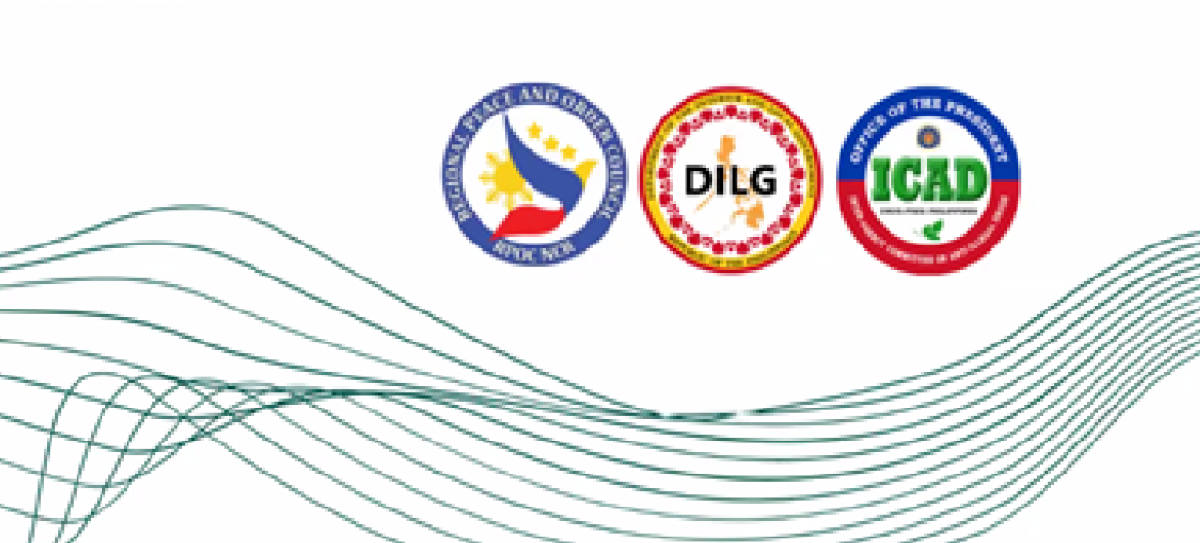ICAD and its anti-drugs strategy amid the pandemic

President Rodrigo Roa Duterte has always been adamant and steadfast of the end he wants to see in his administration from the moment he assumed office back in 2016, and that is transparently, a drug-free Philippines.
On the concluding phase of his leadership in 2022, it could positively be the case owing to the unrelenting efforts of the government specifically the Inter-Agency Committee on Anti-Illegal Drugs (ICAD) as the responsible inter-governmental forum for combating the substantive social plague in the country together with various member agencies.
Four years after its institution by virtue of Executive Order No. 15 in 2017, ICAD remains definite, progressive, and focused on its aim to cut at the root drug trafficking by means of a transformative change: from high-level individuals of organized crime, down to its bureaucratic networks, and then to the street peddlers.
During the recent joint meeting of the coordinated departments of ICAD-NCR on June 24, Assistant Director of PDEA-NCR and Lead of RPOC-NCR SAC on Anti-Illegal Drugs, Irvin John Coderis, emphasized that “ang droga, kahit saan man galing, sa kalsada pa rin ang landing” (drugs, no matter its origins, always end up in the streets) to reiterate the importance of maintaining holistic strategies to strive against the further spread of illicit activities involving drugs, especially amid the pandemic.
The main agenda of the monthly joint meetings is to discuss and re-evaluate the accomplishments of ICAD and its member agencies toward the fulfillment of their respective functions.
Central to the online gathering for ICAD-NCR are the activities, operations, and shared responsibilities to put a stop on the drug trade by the Dangerous Drug Board (DDB), Department of Interior and Local Government (DILG), Department of Social Work and Development (DSWD), and the National Capital Region Police Office (NCRPO).
Enforcement and Justice
From a total of 854 conducted anti-illegal drug operations according to the consolidated data per NCR police district in April, the NCRPO comparatively reported the strengthening of its law enforcement amounting to 983 operations conducted for the month of May 2021, thereby increasing the number of persons arrested to 1,712 that is incrementally higher than the previous month with 1,499 arrests.
Meanwhile, a total of 544 combined high-level and street-level drug personalities have been newly identified having at least 521 of them arrested by this time.
In its next meeting, ICAD-NCR is set to express a commendation to the NCRPO in view of the agency's efforts to speedily prosecute the prevailing drug cases in the region as propounded by Undersecretary Gilbert Cruz of DDB.
Rehabilitation and Reintegration
Bahay Pag-asa or Youth Home Facility is an initiative directed to cater both the Children at Risk (CAR) and Children in Conflict with the Law (CICL) by providing a series of intervention programs in a conducive setting rather than a prisonlike.
This inclusive project, that ensures recently apprehended minors proper rehabilitation and prevention from engaging in another crime, is pursuant to R.A. 9344 or the otherwise known as Juvenile Justice and Welfare Act of 2006.
Following the accomplishment report of DSWD-NCR presented by Social Welfare specialist, Herminia Salvador-Arcangel, the emergence of the pandemic in a pace unprecedented brought about a serious challenge to the management of Bahay-Pagasa in the 17 local government units of NCR.
However, the unwavering determination of LGUs has transcended beyond the restraint of quarantine and devised efficient strategies to remain productive and tending to the needs of the CICL who are in their resilient phases of rehabilitation.
These include, among others, the implementation of relevant activities such as online classes and virtual visits in Bahay Pag-asa/Youth Homes to continuously provide for the reintegration of CAR and CICL under the custody of DSWD as “useful members of society.”
At present, there are 12 operational Bahay Pag-asa in NCR, 4 Youth Homes, and 1 Temporary Processing Center operating in Pateros.
Advocacy
Aside from ensuring the expeditious prosecution of drug personalities, drug prevention and control should not come to the least of priorities of ICAD, according to Usec. Gilbert Cruz of DDB, especially in light of the celebration of International Day Against Drug Abuse and Illicit Trafficking (IDADAIT) on June 26, 2021.
The said event is anchored at reinforcing global cooperation against illegal drugs through setting proactive initiatives such as promoting drug prevention rather than utterly directing the attention of the public to reactive measures like rehabilitation.
During his presentation, Usec. Cruz had mentioned about creating a YouTube channel called “DDB TV” that will focus on addressing misinformation or inaccuracies pertaining to illicit drugs and share relevant content which ought to deliver drug use information among the youth of today.
Through intensified drug prevention advocacies, the DDB is confident that the present generation can be influenced into steering clear of the most contagious plague – substance abuse. (PIA NCR/with reports from OJT Janna Pineda)




